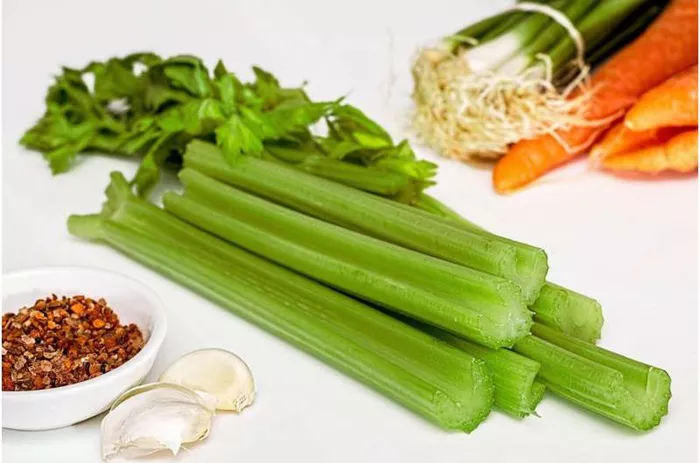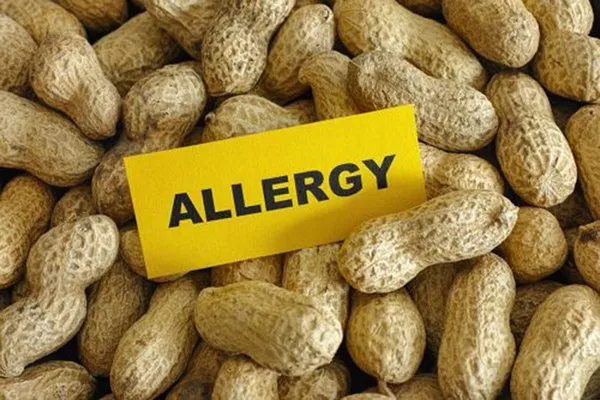A recent clinical study has identified a specific protein, defensin, as a critical allergen linking celery and mugwort pollen, offering new insights into severe allergic reactions and potential diagnostic approaches. Published in the Journal of Allergy and Clinical Immunology, the study highlights the significant role of defensin (Api g 7) in celery and its cross-reactivity with mugwort pollen (Art v 1), underscoring the risk of severe allergic reactions in sensitized individuals.
Celery Allergies: A Major Concern
Celery, a common cause of vegetable allergies, affects approximately 1 in every 200 European adults (0.45%). The symptoms of a celery allergy range from mild oral reactions to severe anaphylaxis. According to the European Anaphylaxis Registry NORA, celery triggers 6% of registered adult anaphylaxis cases, with celery-induced anaphylaxis occurring more frequently than expected given its prevalence.
Two primary varieties of celery are commonly consumed: the root (Apium graveolens var. rapaceum, or celeriac) and the stem (Apium graveolens var. dulce). Celery anaphylaxis is most often linked to celeriac, which is used both raw and cooked, as well as a spice in processed foods, increasing its potential as a hidden allergen.
High Risk for Allergy Sufferers
The risk of allergic reactions to celery is exacerbated by its low ED10 value—the minimal dose required to trigger a reaction in 10% of the allergic population— which is ten times lower than that for peanut allergies. Furthermore, celery allergens are resistant to thermal processing, making celery a particularly risky food for allergy sufferers. Consequently, celery and its derivatives are subject to strict allergen labeling requirements in the European Union.
Celery-Mugwort Syndrome
Severe allergic reactions to celery are predominantly observed in individuals sensitized to mugwort pollen (Artemisia vulgaris), a major cause of weed pollen allergies in Europe. This association, known as celery-mugwort syndrome, has been further clarified by identifying defensin Api g 7 as a cross-reactive allergen.
Defensins, small polypeptides found in all animals and higher plants, play a defensive role against microbial pathogens. Previous research led by Professor Stefan Vieths, Acting President of the Paul-Ehrlich-Institut, identified Api g 7 as a potential cause of cross-reactivity between celery and mugwort pollen.
Clinical Study Findings
The recent study, led by Professors Stefan Vieths and Barbara Ballmer-Weber, involved 79 patients with confirmed celery root allergy. The study aimed to understand the molecular basis of celery-mugwort syndrome and the significance of Api g 7. Participants underwent a standardized survey and medical examination, including IgE antibody testing against seven celery allergens and three mugwort allergens.
Results showed that 68% of participants had IgE antibodies against celery extract, 80% against birch pollen, and 77% against mugwort pollen. Notably, 52% of patients had IgE antibodies against Api g 7, correlating closely with IgE against Art v 1 from mugwort pollen. Individuals sensitized to Api g 7 were about six times more likely to experience severe anaphylactic reactions compared to those without this sensitization.
Diagnostic Implications
The study revealed that the diagnostic sensitivity of IgE testing for celery was 68%, limited by the underrepresentation of Api g 7 in allergen extracts. Sensitivity increased to over 90% when using a combination of purified individual allergens, confirming the critical role of defensin in cross-reactive allergies between celery and mugwort pollen.
Future Research
Further studies are needed to explore whether homologues of Api g 7 play similar roles in other mugwort pollen-associated spice allergies. This research could pave the way for improved diagnostic and therapeutic strategies for individuals at risk of severe allergic reactions to celery and related allergens.































